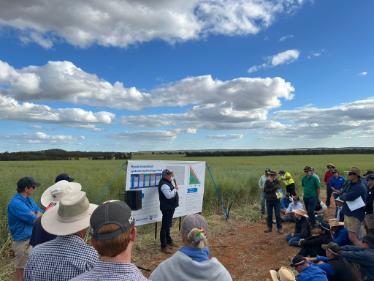A novel collaboration between the University of Wollongong and Pacific Seeds has demonstrated the ingenuity of 2 organisations to create an advanced statistical solution to comparing canola varieties across multiple herbicide technologies and environments, ultimately benefitting Australian growers and advisors.
The new Hyola Innovation Systems Technology trial design initially developed by the private seed company, Pacific Seeds has been thoroughly reviewed and further statistically enhanced by the UOW team of Senior Professor Brian Cullis and Dr Alison Smith to enable the most accurate statistical analysis for multi-technology canola performance single site and MET outputs.
Dr Alison Smith recently presented the Innovative design and statistical outputs at the 2023 International Rapeseed congress being held in Sydney with over 500 delegates from 31 countries with the title being “Novel statistical design and analysis that enables valid comparisons of canola varieties across herbicide tolerance groups”.
The enhanced design summarised variety predictions for individual environments using interaction class (iClass) technology. iClasses are groups of environments that discriminate varieties with different patterns of variety by environment interaction.
The analysis FA model used formed four iClasses, grouping trials into environments based on G*E interactions. This calculated overall yield performance for each variety in each iClass (mean of VE predictions over environments in iClass).

Justin Kudnig, Pacific Seeds, National Canola Technical Manager, said that “this exciting new venture now provides more informed statically valid information on across-technology canola variety yield performance comparisons, which is now being presented across Australia to all canola growers, agronomists and advisors by the Pacific Seeds canola technical team”.
Into the future, the University of Wollongong and Pacific Seeds intend to continue the collaboration to further enhance statistical integrity around a range of crop species multi-environmental specific trait assessment analysis methodologies.